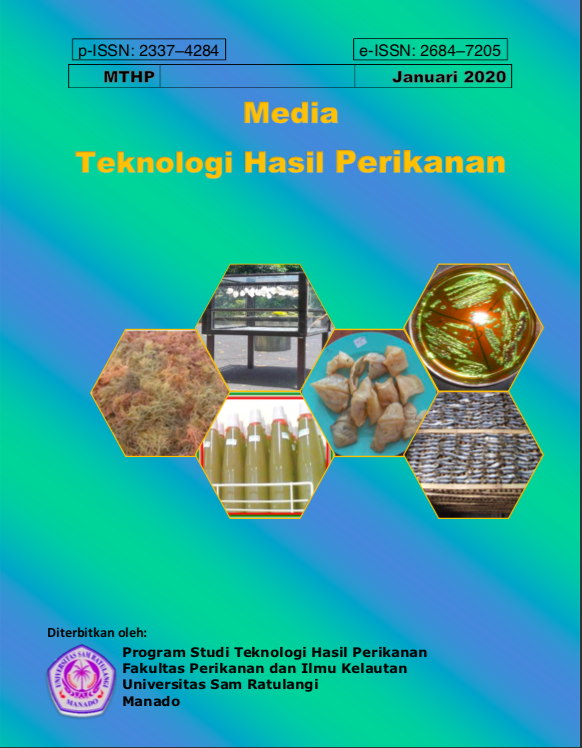Penerapan Diversifikasi Produk Perikanan di Desa Darunu, Kabupaten Minahasa Utara
DOI:
https://doi.org/10.35800/mthp.8.1.2020.26055Keywords:
diversifikasi olahan perikanan, PKM, Darunu, Minahasa UtaraAbstract
Community Partnership Program (PKM) is an activity to empower community members as a form of partnership among academia, the community and the government. The program aims to improve the skills, production and welfare of the community. The program's target partners are located in the village of Darunu, Wori District, North Minahasa Regency. Geographically located on the coast with potential for marine fisheries that have the potential to be developed. The village is categorized as a fishing community, where around 30% are classified as poor families and have a small business as fish sellers of fish processors. The specific target of activities is to produce superior diversified products in terms of taste, sanitation and hygiene, as well as to provide business continuity for diversification of fish meatball products, dragon legs, and fish nuggets. The issue that has to be solved is that how to utilize  fishery products  during abundant harvests. The methods applied in this program are 1) Training of how to produce fish products using good manufacturing practices;  2) Mentoring and evaluation on the way the partners handling fish product.
Downloads
Published
How to Cite
Issue
Section
License
Authors who publish with this journal agree to the following terms:
- Authors retain copyright and grant the journal right of first publication with the work simultaneously licensed under a Creative Commons Attribution License that allows others to share the work with an acknowledgement of the work's authorship and initial publication in this journal.
- Authors are able to enter into separate, additional contractual arrangements for the non-exclusive distribution of the journal's published version of the work (e.g., post it to an institutional repository or publish it in a book), with an acknowledgement of its initial publication in this journal.
- Authors are permitted and encouraged to post their work online (e.g., in institutional repositories or on their website) prior to and during the submission process, as it can lead to productive exchanges, as well as earlier and greater citation of published work (See The Effect of Open Access).






